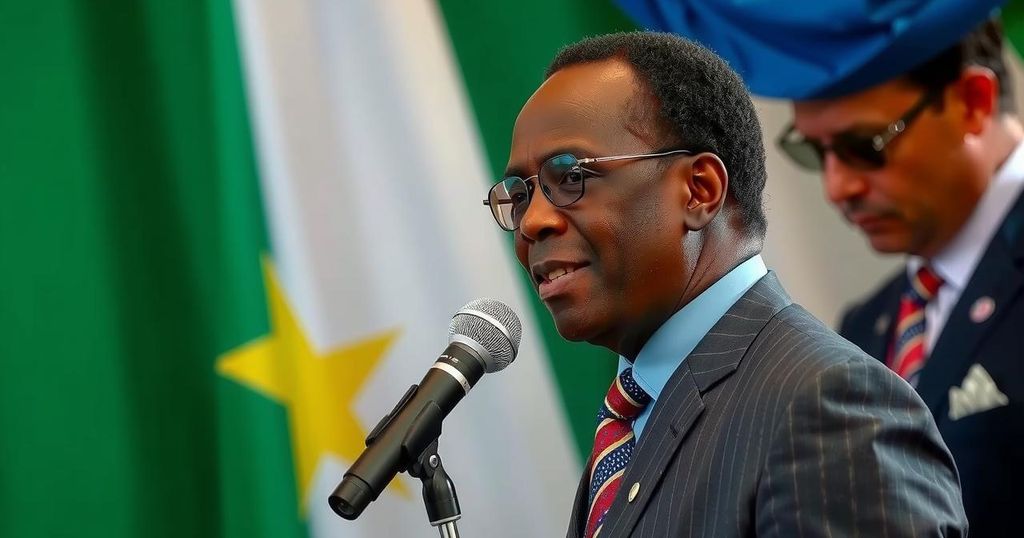Senegal Prepares for Crucial Legislative Elections Amid Rising Tensions

Senegal’s tense electoral campaign concludes as the country approaches key legislative elections this Sunday. Voters will select 165 lawmakers, crucial for President Faye’s reform agenda, currently hindered by his party’s lack of majority. The campaign has witnessed violence and clashes among rival supporters, mirroring the complexities of Senegal’s political landscape after recent presidential elections.
Senegal is concluding a fraught election campaign ahead of crucial legislative elections scheduled for this Sunday. Politicians have been vying for the support of voters to secure a majority in the 165-seat assembly, a situation critical for President Bassirou Diomaye Faye, who currently lacks a dominant legislative presence. Elected on an anti-establishment platform, President Faye faces significant challenges in implementing his promised reforms, including measures against corruption and increased resource allocation to benefit the populace. To convene a fresh legislature, Faye dissolved the opposition-led parliament earlier this year, a decision that led to the snap elections. His primary competitor is the Takku Wallu opposition coalition, spearheaded by former President Macky Sall. Throughout the campaign period, tension has escalated, evidenced by violent confrontations among party supporters and aggressive incidents, including the reported arson of an opposition party’s headquarters in Dakar. Ousmane Sonko, the prime minister and key opposition figure, expressed outrage over attacks on his supporters and proclaimed, “May each patriot they have attacked and injured, be proportionally avenged.” He later urged his followers to practice restraint following violent episodes, highlighting the intense atmosphere surrounding the upcoming elections. The lead-up to the legislative elections has not only tested the patience of political factions but has also scrutinized Senegal’s democratic integrity after both the president and prime minister were released from prison shortly before the March presidential elections. Their previous arrests raised public outcries and fears regarding President Sall’s intentions to circumvent term limits, resulting in widespread unrest and violence occurring in the country.
The political landscape in Senegal has become increasingly complex as it grapples with the ramifications of previous electoral processes and the dynamics between emerging and established political figures. The recent elections have spotlighted President Bassirou Diomaye Faye’s ambitious reform agenda, aimed at tackling longstanding issues such as corruption, and equitable distribution of natural resource benefits. The dissolution of the previous parliament and the initiation of snap elections have intensified tensions, revealing the fragility of the country’s democratic principles amid growing public discontent and political rivalry.
In summary, Senegal is confronting significant turmoil as it approaches critical legislative elections. The tensions among political groups and violent incidents underscore the urgency of these elections for President Faye, who must secure a majority to advance his reform agenda. With key figures like Ousmane Sonko engaging in heated rhetoric, the stakes are exceptionally high, raising questions about the nation’s political future and the resilience of its democratic institutions.
Original Source: apnews.com






